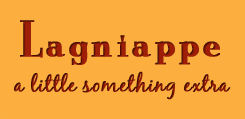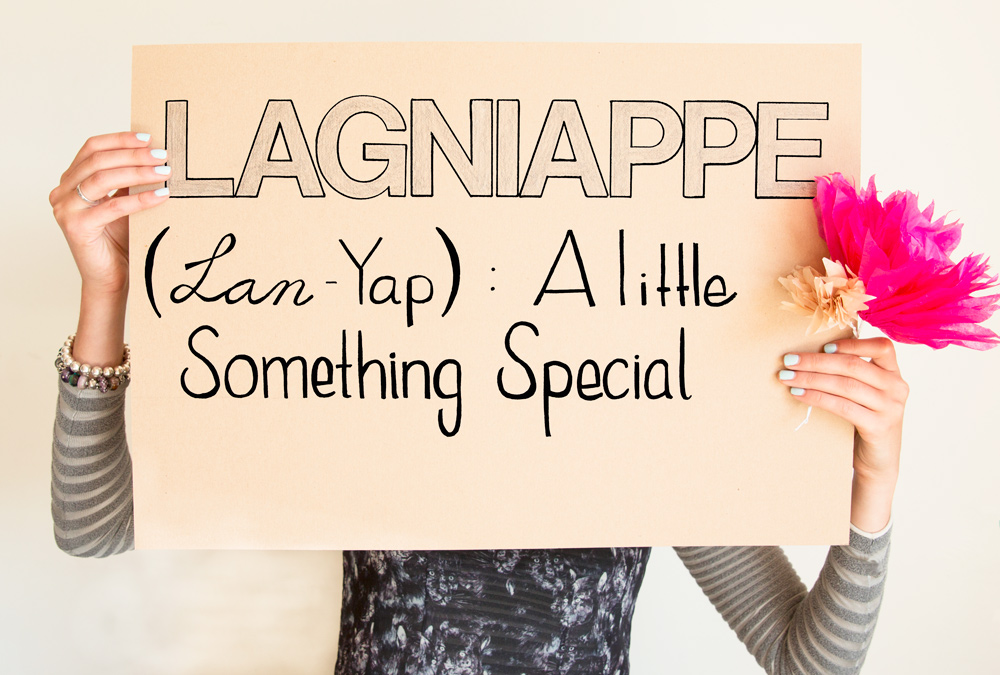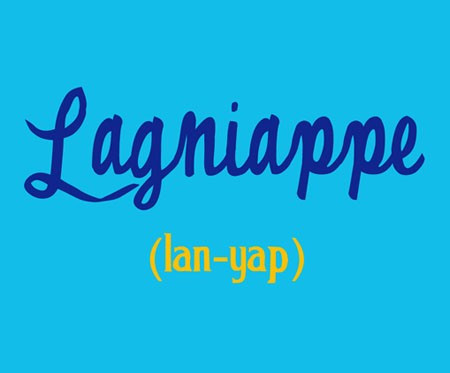I took a hiatus from this blog back in April, but after a busy, productive summer and with the start of a new school year, I realized just how much I missed writing and how much I have to say, and blogging seems to be a way to accomplish both of these goals. The blog needed a new name since the last name was specific to the my 90 day project before turning 40, which I have to say was lots of fun. So, I’ve named the blog Lagniappe, and I assume at least some of my readers may not be familiar with the word. It’s a fun word, and once you know the meaning and start using it, you can’t go back. Dictionary.com defines it as follows:
1. Chiefly Southern Louisiana and Southeast Texas . a small gift given with a purchase to a customer, by way of compliment or for good measure; bonus.
2. a gratuity or tip.
3. an unexpected or indirect benefit

I usually define if for people as a little something extra.
 Mark Twain used it in his book, Life on the Mississippi (1883). He writes,
Mark Twain used it in his book, Life on the Mississippi (1883). He writes,
We picked up one excellent word — a word worth travelling to New Orleans to get; a nice limber, expressive, handy word — “lagniappe.” They pronounce it lanny-yap. It is Spanish — so they said. We discovered it at the head of a column of odds and ends in the Picayune, the first day; heard twenty people use it the second; inquired what it meant the third; adopted it and got facility in swinging it the fourth. It has a restricted meaning, but I think the people spread it out a little when they choose. It is the equivalent of the thirteenth roll in a “baker’s dozen.” It is something thrown in, gratis, for good measure. The custom originated in the Spanish quarter of the city. When a child or a servant buys something in a shop — or even the mayor or the governor, for aught I know — he finishes the operation by saying — “Give me something for lagniappe.”
The shopman always responds; gives the child a bit of licorice-root, gives the servant a cheap cigar or a spool of thread, gives the governor — I don’t know what he gives the governor; support, likely.
When you are invited to drink, and this does occur now and then in New Orleans — and you say, “What, again? — no, I’ve had enough;” the other party says, “But just this one time more — this is for lagniappe.” When the beau perceives that he is stacking his compliments a trifle too high, and sees by the young lady’s countenance that the edifice would have been better with the top compliment left off, he puts his “I beg pardon — no harm intended,” into the briefer form of “Oh, that’s for lagniappe.” If the waiter in the restaurant stumbles and spills a gill of coffee down the back of your neck, he says “For lagniappe, sah,” and gets you another cup without extra charge.
I particularly love the “When you are invited to drink, and this DOES occur now and then in New Orleans…”
So I’ve introduced the word to my group of friends and colleagues here in eastern North Carolina, and we use it regularly. What I’ve come to realize is how perfect the word is to describe everyday occurrences that can be extraordinary or meaningful and also unexpected or unplanned. And there’s a sorta gratification is finding some lagniappe in an what may feel like an ordinary day.
In some cases, it is not until I’ve told the story or discussed the experience that I then define it as lagniappe. It’s as if in the recognition of the extra that we’re able to name it. So those cancelled meetings and unplanned phone calls or text conversations that brighten your day: lagniappe. That additional favor or little gift for a friend for no reason: lagniappe. The unexpected email from an editor: lagniappe Any unplanned or unexpected enjoyable experience: could be lagniappe.
Below is how to pronounce the word, and as I reread some of the my posts from earlier this year, I was reminded that it’s THE perfect name for this blog. It’s about documenting and recognizing the extras. I hope you’ll share the lagniappe from your own life.






